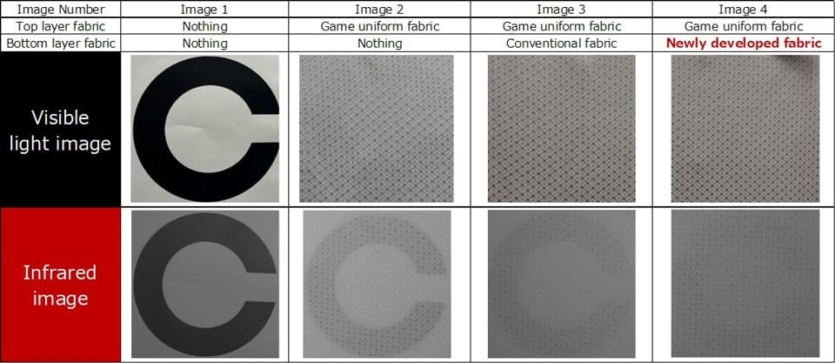
The Japanese company Mizuno has partnered with athletes to create a special type of fabric, that will not allow infrared and thermal imaging cameras to shine through the athletes’ clothes.
In particular, at the Summer Olympics in Paris in 2024, some Japanese athletes have already performed in equipment made of this infrared-absorbing fabric. The fact, is that spectators at sporting events in recent years have increasingly begun to use infrared and thermal imaging cameras, which show through sportswear and can reveal the naked body parts of athletes, especially women.
This is causing outrage among athletes. In 2021, at the Tokyo Olympics, athletes filed a complaint against to the Japanese Olympic Committee after their explicit photos, taken with infrared cameras were published on social media.
Some thermal imaging devices can detect the contours of a person’s body or their underwear through a thin layer of sportswear. This looks inadequate and perverse, but there are people who do it.
Mizuno is currently working to create a fabric that will not transmit not only infrared radiation and thermal imaging cameras. According to the results of experiments, as noted by Mizuno, the black printed “C” symbol under the fabric layer and the new infrared-absorbing material made it virtually invisible when observed through an infrared camera.

The new uniforms also keep the athletes cool and comfortable. It is noted, that the 25-year-old Japanese athlete Mei Kodama, who participated in the 4×100 meter race at the 2021 Tokyo Olympics, tested the new clothes and found them to be more comfortable, than she expected.
“The use of newly developed infrared-blocking fabric in sportswear could help reduce the number of athletes who fall victim to illegal infrared photography”, — Mizuno said in a press release.
Japan is considered one of the safest countries in the world with a low crime rate. However, the problem of sexualization of women is widespread in Japan. Sexual harassment and non-consensual photography are among the most pressing issues.
The problem of unauthorized photography is so widespread that in Japan, cameras must emit a shutter sound to prevent covert, aggressive photography. Signs warning of the dangers of this practice are often seen on public transportation. Sexualized photos of female athletes are also a problem.
Airi Hatakeyama, a former group rhythmic gymnast and now a TV journalist in Japan, was shocked by the constant photos of her, often in an indecent manner, even when she was still a minor. Reiko Shiota, a badminton player, discovered that photos of her breasts and lower body were being widely shared on social media.
In 2021, a man was arrested in Japan for filming a volleyball player with an infrared camera and selling the images. Two years later, Kyoto authorities opened a criminal case against another man for filming the lower body of runners.
Some sports (such as gymnastics) already have a ban on photography, and Olympic organizers are trying to introduce stricter measures, but given the prevalence and power of smartphones, this is not easy. Japan has also passed a law criminalizing the taking of photographs of any person without their consent and punishable by three years in prison.
In one of the most disturbing recent cases, japanese police arrested a man who used an infrared camera to illegally film swimmers, some as young as 11 years old. Japanese gymnast Aiko Sugihara, who was tired of explicit photos on social media, founded her own company to produce swimsuits that reach the top of the thighs and cover most of the athletes’ bodies.
Women’s teams are increasingly demanding that shorts be worn instead of open clothes. Recently, the Norwegian beach handball team was fined for wearing shorts instead of bikinis.
Source: ZME Science

Spelling error report
The following text will be sent to our editors: